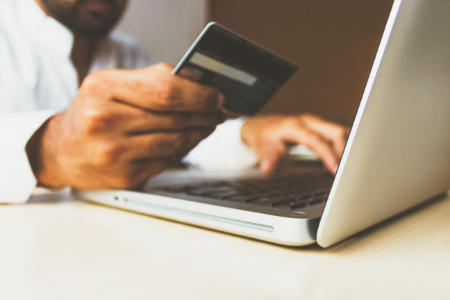Our lives are increasingly digital. The protection of our personal and sensitive data has never been more critical. From financial information to personal correspondence, our data is valuable and can be a target for cyber threats. To keep your data safe and protect your privacy, you need to out procedures in place. Here are five essential things you need to know.
The Importance of Strong Passwords
One of the simplest yet most effective ways to protect your data is by using strong, unique passwords for all your online accounts. Weak passwords are an open invitation to hackers, so consider the following tips:
- Create complex passwords: Use a combination of upper and lower-case letters, numbers, and special characters.
- Use a passphrase: A passphrase, like a sentence or a combination of unrelated words, can be easier to remember and just as secure.
- Avoid common passwords: Steer clear of easily guessable passwords like “123456” or “password.”
Consider using a password manager to keep track of your passwords securely. These tools can generate strong, unique passwords and store them in an encrypted database, ensuring your accounts remain safe.
Enable Two-Factor Authentication (2FA)
Two-Factor Authentication, or 2FA, adds an extra layer of security to your accounts. It typically involves receiving a one-time code via SMS or using an authenticator app in addition to entering your password. Enabling 2FA provides an additional barrier to unauthorized access, even if someone knows your password.
Make use of 2FA wherever it’s available, especially for your email, financial, and social media accounts. It significantly reduces the risk of unauthorized access and data breaches.
Regularly Update Your Software and Devices
Software and device manufacturers frequently release updates and patches to fix vulnerabilities and security issues. Failing to keep your operating system, applications, and antivirus software up to date can leave you exposed to known threats.
Set your devices and software to update automatically when new patches are available. This way, you’ll ensure that you have the latest security improvements without having to manually update each application.
Beware of Phishing Scams
Phishing is a common method used by cybercriminals to trick individuals into revealing their sensitive information. These scams often involve deceptive emails or messages that appear to be from legitimate sources, such as banks or trusted companies.
To protect yourself from phishing:
- Be cautious when clicking on links or downloading attachments from unsolicited emails or messages.
- Verify the sender’s identity by checking their email address and contact details.
- Don’t share personal information or passwords through unsolicited messages.
Educating yourself and your family about phishing threats and practicing good email hygiene is crucial to avoid falling victim to these scams.
Regular Data Backups
Data loss can happen due to various reasons, including hardware failures, theft, or malware attacks. Regularly backing up your important data is a fundamental precaution.
Consider the following tips for secure data backups:
- Use an automated backup solution to ensure consistent and up-to-date backups.
- Store backups in multiple locations, including external hard drives, cloud storage, or network-attached storage (NAS).
- Test your backups periodically to ensure you can successfully restore your data when needed.
Keeping your data safe requires vigilance and knowledge. By implementing strong password practices, enabling 2FA, keeping your software and devices updated, being cautious of phishing scams, and regularly backing up your data, you can significantly reduce the risk of data loss or unauthorized access. Your data is valuable—make sure to protect it by staying informed and taking the necessary precautions to keep it safe.
See how a Modern Observer Group coach can help you create processes and procedures to protect your business and make it run smoothly. Schedule a call here or contact us at the information below. Modern Observer Group programs are based on the Businetiks system as detailed in the book, “The Businetiks Way.”



Connect With Us